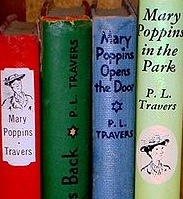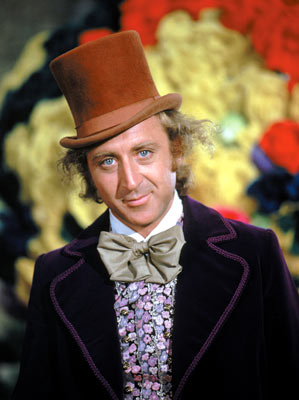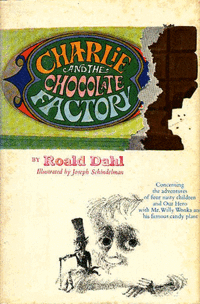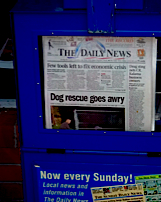 cat-pushing-pram
cat-pushing-pram
Throughout this series, I have been examining various possibilities for finding non-professional (read: unpaid) feedback for your book before you send it out to agents and editors. The timing is not entirely accidental, of course: I don’t know if you’ve been following any of the publishing industry’s trade papers — and right now, I would hardly blame any writer who chooses to avert her eyes from them — but to summarize clumsily, both US and world book sales have been scaring folks for a few months now. Necessarily, this fear has affected how willing editorial committees are to take chances on first-time authors, which in turn constrains how much freedom editors have to do so (in case it’s news to anyone, acquiring a book is seldom a unilateral decision), and thus limits what agents can hope to sell to editors.
In other words, if you REALLY want to depress yourself, do a bit of research on how many debut novels the top agencies have sold within the past 6 months. Agents who have sold more than one are generally considered to be doing pretty well.
I’m bringing this up not to depress those of you with first novels in hand into a stupor — although I could easily see where the news might produce that effect — but to point out a potentially sanity-saving insight for those of you currently in the throes of agent-seeking. While it’s tempting for queriers to blame agents for being overly picky, any given agent you might be considering querying did not create the current economic crisis. (I do know one in particular whom I would love to blame for the recession, global warming, and the heartbreak of athlete’s foot, but logic forbids it, unfortunately.) While it might feel good in the short run to rage at them, it’s not fair, strictly speaking.
And I’m not just saying that because I occasionally hear from agents and editors who read this blog. I’m saying it because investing energy in resenting them for being highly selective is rather like blaming the baseball that suddenly whacked you in the head while you were walking by the Little League field, rather than the pitcher whose arm went awry.
You get hit in the head either way, of course, but at least your perception of where the ball came from can be accurate.
Let’s face it, even in good times for booksellers, aspiring writers do have a nasty habit of holding the agenting world responsible for how difficult it is to sell a first book. Mostly, this is because the agent is the first line of defense to be breached whilst storming the castle of publication, the guard dog to bribe with a nice bit of steak in order to slip inside, where the treasure is. Since agents do tend to be alarmist in how they speak to writers about market trends (with many, the only two adjectives available to describe a manuscript are marketable and unmarketable, sometimes used for precisely the same book), that guard dog’s barking has gotten pretty loud lately. Due to the rise of form-letter rejections –and e-mail responses made up solely of generic industry-speak that are effectively the same thing — the bark of rejection has come to be identical for both good submissions and bad, so it’s extremely difficult for the knight attempting to storm that castle to get a sense of the progress he’s making, or even to be sure that he is making progress.
Small wonder, then, that so many aspiring writers come over time to regard agents not so much as guard dogs as dragons, breathing fire across the moat to discourage all comers. The important thing to remember is that the barking is aimed at all comers, not just at you.
I know, I know — it doesn’t feel that way when you receive a rejection letter, but right now, I don’t think even the most viciously snarling gate-guarder would argue that there aren’t perfectly wonderful books getting rejected at the moment because of the economy. Or that — and you might want to brace yourself, because the next revelation is a lulu — Millicent the agency screener hasn’t been told to crank up her already sky-high standards lately.
I told you to brace yourself. Maybe next time, you’ll listen.
What does all this mean for those of you who are querying and submitting? Well, in the first place, an agent who rejects a book concept today (“It’s unmarketable!”) may well feel quite differently six months or a year from now (“It’s marketable!”). While it runs counter to industry etiquette to resubmit a manuscript that an agent has already rejected — unless the agent actually asked you to revise and resubmit — waiting a year and querying again actually isn’t a terrible idea. Market demands change all the time.
Oh, if the same Millicent is on duty and she happens to have a very retentive memory, she might tell you it’s a bad idea, but frankly, there’s a lot of turnover in her line of work. I wouldn’t advise sending repeat queries every couple of months, of course, but neither would I say that the common wisdom that a writer should query a particular agent only once ever is practicable in the current environment. Wait a year and try again.
In response to those of you who just groaned audibly: in the current agent-seeking market, a year isn’t all that long anymore. Excellent books now routinely take years to find the right fit.
What all of this most emphatically DOESN’T mean is that talented aspiring writers should write off trying entirely, or that agents aren’t still trolling for that next surprise bestseller. (They’re as tired of reading books about teenage girls’ crushes on vampires as anyone, you know.) You shouldn’t, and they are. But for the sake of your own health and happiness in these grim economic times, please, I beg you, try not to take rejection as a referendum on the quality of your writing.
Unless, of course, it is. But if you’ve just spent the last three months revising your little heart out, yet are still receiving rejections, how on earth are you going to tell?
In order to find out if the writing is the problem the age of the form rejection, an aspiring writer is almost certainly going to have to elicit feedback from readers other than the agents to whom he’s submitting. Furthermore, since Millicent has indeed ratcheted up her standards so as not to overwhelm her boss with far more well-written books than they could possibly sell right now, there has never been a better time in writerly history to run your submission past other eyes first.
Consider investing some serious energy in finding a good first reader for your manuscript. Better still, try pulling together a team of first readers capable of catching a lot of different kinds of problems AND identifying your book’s strengths.
As I mentioned last time, I’m not just talking about crackerjack fellow writers here. I’m also referring to readers in your target demographic.
Phew — it was a long road, but I finally managed to drive the buggy back to where I deposited you at the end of yesterday’s ride.
Not to knock writers’ groups, of course: if the mix is right, they can be marvelous sources of trenchant feedback. But every group is different, and often, groups are organized on the basis of friendship or general affinity, rather than shared genre or level of writing experience — or, as many hard-working group veterans know to their cost, familiarity with standard manuscript format and/or the rules governing the use of the English language.
Heck, many’s the group whose members actually have no more in common than living in the same geographical area and a history of their work getting rejected from time to time.
All of these factors are worth considering because — will you heed me this time if I once again ask you to brace yourself? — not every talented writer is the best choice to offer critique on a particular book, any more than any given agent or editor would be the right fit for it.
Does that strike some of you as counter-intuitive? Believe me, it isn’t: what your manuscript needs is not just a good reader or someone who knows how a manuscript should be put together — although both are excellent traits in first reader — nor merely someone who can place the work fairly accurately on the publishable-to-heavens-NO! continuum. Ideally, what you should seek is a specialist who can diagnose your book’s problems and prescribe workable solutions.
Which means, alas, that even a critique group made up of the most brilliant, cutting-edge, eagle-eyed writers won’t necessarily yield the best feedback for your work. After all, just because a writer is intelligent and knows a lot about craft doesn’t necessarily mean that he’s familiar with the specific likes and dislikes of a target demographic other than his own, or that a great nonfiction writer would necessarily be able to pinpoint the problems in a novel.
And trust me on this one: the lone memoirist in even the best group of novelists is going to end up unhappy — and, if she’s a conscientious advice-taker, probably spending far more time revising commented-upon work than moving on to chapters new. As I believe I’ve mentioned 723 times before in this forum, the desirata of what constitutes a good book can vary quite widely from category to category.
You’re also going to get better feedback from any group — don’t just brace yourself this time; sit down and take a few deep breaths before reading on — if you invest at least the first couple of sessions setting firm ground rules for how to exchange feedback.
Admittedly, whenever any two writers are exchanging manuscripts for critique, lack of agreement upon what is and isn’t fair game for examination can lead to trouble, but in a group, advance discussion of goals is absolutely imperative. If the mix of philosophies is not right — if, for instance, various members are writing in genres with wildly disparate conventions, such as literary fiction and mystery — or if members have different ideas about how much feedback is appropriate, being a member can be more frustrating than empowering.
I could give you literally hundreds of specific examples, but I don’t want to tell tales out of school. Suffice it to say that as an editor, I constantly get queries from potential clients whose creative NF is being ripped apart by the novelists in their critique groups, whose mysteries are being dismissed as characterization-light by literary fiction writers, whose romances aimed at the under-20 set are garnering frowns from the over-60s.
Considering how widely book categories and reading tastes can vary — gee, where have I heard that before? — this outcome should perhaps not surprise us much, even when the literary market is not particularly tight. But in times like these, where fear of the future is reflected in practically every eye, basic disagreements are more likely to flare into outright argument.
In the early stages of the writing process, when you are concentrating on story and structure, intra-group differences may have a minimal impact upon you, but if I had a dime for every memoirist who was told by advocates of tight first-person fiction to scrap any effort at objectivity, or women’s fiction writers told by thriller writers to add more sex and violence to the book, I would own my own publishing house.
Where I would publish all of your work, naturally. Perhaps I should start soliciting those dimes.
Writers’ groups can also become a bit stale over time, as members become inured to one another’s literary foibles and quirks. Resentment over past advice not taken can certainly add up as the months go by (for a really good example of this, please see the comments on an earlier post on this topic), and it’s not uncommon for heavy commenters and light commenters to mutter under their breath at one another’s habits.
Not to mention how easy it is to find oneself starting self-edit at the conception stage to cater to the tastes of one’s writer’s group. Many a good writer’s voice has become indelibly imprinted with the personal preferences of her critique group — sometimes a positive thing, of course, but there’s a reason that industry insiders use MFA story and workshopped to death as criticisms; writing by committee tends to produce bland manuscripts.
No wonder some pros advise changing critique groups often, or joining more than one. Or at least not spending months or even years workshopping the same chapter or short story until absolutely no one in the critique group can produce a single objection to it before moving on to Chapter 2 or the next short story.
Am I suggesting any of those things? Well, I might, if I thought you had more time on your hands. But frankly, most of the aspiring writers I know would have considered themselves lucky to be able to grab two consecutive hours for revision during the recent holiday season. Adding yet another time commitment (and if you hold up your end, a writers’ group can be a very serious one) may not be possible for everyone.
So I’m going to streamline my advice a bit. If you are a member of a writers’ group, and you feel that you have not been getting overly useful feedback on your work, you might want to consider whether its members actually are in your target demographic — and if they are not, either switching groups or adding a few outside readers to your feedback team.
As when you are considering any potential first reader, set aside for the moment whether you like the people in your group, or whether you respect them, or whether they have already published books outside your field. Look very carefully at their respective backgrounds and ask yourself: are these the kind of people I expect to buy my book? If they did not know me, would they buy it at all?
If the answer to either is no, go out and find some people who are and will, pronto.
Where should you start looking, you ask? Well, last time, I brought up the notion of approaching readers in your book’s target demographic who might NOT currently be die-hard book-buyers: a third-grade classroom’s worth of potential readers for a children’s book, for instance, or followers of a sport featured prominently in your novel.
This advice may have seemed a tad counter-intuitive: in an earlier post, I had advised getting feedback from inveterate readers of your chosen genre or field, who would already be familiar with the conventions, limitations, and joys possible in books like yours. All of which, of course, can be highly useful background for a critiquer.
Yet it’s also worth considering adding at least one first reader who isn’t a hard-core reader to your team as well. Getting feedback from those who do not read voraciously, yet are familiar with the book’s subject matter, can sometimes give a writer great insight unavailable from any other source.
Why? Well, let me ask you: given the choice between a reader predisposed toward a subject and one who isn’t, which is more likely to get into a book about it deeply enough to give good feedback? Perhaps more to the point, which is more likely to take time out of her busy schedule to do you the favor of giving your book a close read, gratis?
If that didn’t convince you, there’s always the sordid materialist argument: in time, if all goes well, some lucky book peddler is going to be trying to convince people to buy your book — and not every potential buyer is going to be someone who reads 27 books per year. So it’s worth asking yourself: other than my book’s obvious literary value, why might someone who habitually buys only one book a year spring for mine?
And, perhaps even more revealing: what about my book’s premise might lead someone who does haunt bookstores to buy it as a present for someone else?
The more detailed your answers to these questions can be, the more your future agent and editor will like you. Trust me on this one; first-time authors who are really up on their books’ selling points are unfortunately quite rare. Even, surprisingly, first-time nonfiction book proposers — a bit troubling, since a book proposal invariably includes a competitive market analysis, the primary point of which is to show potential agents and editors how the proposer’s book is different and better than what’s already out there. (Is it getting to be time for me to run over the basics of writing a NF proposal again, by the way? If you think so, please leave a comment and let me know.)
In the shorter term, figuring out your book’s selling points can strengthen your querying and pitching attempts considerably. If you can make a case that your book is ideally suited to address the under-served needs of your target demographic — in essence, that it provides those readers with something no recently-released book aimed at them delivers — that’s a marvelous selling point.
Feedback from folks actually in the demographic will, obviously, provide you with tips on how to achieve that admirable goal.
Stop rolling your eyes, fiction writers: these days, nonfiction writers are not the only ones expected to be able to say who is likely to read their books and why. Gone are the days when a writer could get away with a shrug and a dismissive, “Anyone interested in serious literature, I suppose.”
How might this search play out in practice, you ask? Let’s say you’ve written a lifestyle book for former high school athletes who no longer exercise — a rather large slice of the population, or so I would surmise from the fact that at my last high school reunion, a good two-thirds of my former female classmates seemed to be married to men who answered this description. Three of your five chapters are filled with recipes for fiber-filled bran muffins, salads, and trail mix.
Where would you turn for first readers?
Naturally, because you paid attention to an earlier post in this series, you would want to include among your first readers someone familiar with cookbooks, as well as someone who reads a lot of exercise books, right? They would represent the parts of your target market that already buy books like yours.
It would also be well worth your while to seek out jocks from your old high school who have never opened either a cookbook or exercise book before, because they are the underserved part of your target market. In theory, if you can tailor your book’s advice so it makes abundant sense for your old volleyball buddy, you’ll know you have a good shot at writing for people like her.
Hey, you might as well get SOME use from all of those nagging messages Classmates.com keeps sending you about getting back in touch with old playmates, right?
Which leads me to my next tip: seek out an array of different readers to meet your book’s individual needs, rather than trying to track down a single first reader who can address all of them.
Admittedly, assembling such a team is going to require more effort on your part; few writers have the luxury of having an array of first readers easily at our disposal — although, again, if you join a well-constructed writers’ group, you will in fact have gained precisely that. In the absence of such a preassembled group, though, you can still cobble together the equivalent, if you think long and hard about what individual aspects of your book could use examination.
Once you’ve identified these needs, you can ask each of your chosen readers to read very explicitly with an eye to her own area of expertise, so to speak.
In the lifestyle book example above, it was easy to see how readers from different backgrounds could each serve the book: the cookbook reader could evaluate the recipes, the former athlete could comment on the ease of the exercises, and so forth. With fiction, however, the book’s various needs may be harder to define. In a pinch, you can always fall back on finding a reader in the same demographic as your protagonist, or even a particular character.
Don’t laugh — specialized readers can be a positive boon to a writer seeking verisimilitude. If a major character is an accountant, try asking an accountant to read the book for professional accuracy. I know many teenagers who get a HUGE kick out of critiquing adult writers’ impressions of what teenage characters are like. And so forth.
Even if you are writing about vampires or fantasy creatures, chances are that some regular Joes turn up in your stories from time to time. If only as soon-to-be-sucked-dry victims.
Naturally, another writer will probably give you more feedback on craft than the sculptor you asked to give his opinion on the use of clay in the book, but what’s wrong with that? You’re assembling a team of specialists, not looking for an all-wise, all-knowing single critiquer.
Is that all I have to say on the subject? Do cats like to help out with the housework?
Until next time, keep up the good work!
















